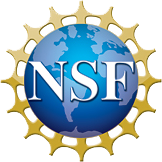NSF IRES
Quantifying Disaster Risk Reduction Geographic Information Capacity with United Nations University Institute for Environment and Human Security and University of Bonn Germany
About the Project
This International Research Experience for Students (IRES) is focused on quantifying disaster risk reduction geographic information capacities. Each year, a cohort of five U.S. graduate students from the Rochester Institute of Technology (RIT) will participate in a ten-week summer research experience with collaborators at the United Nations University Institute for Environment and Human Security (UNU-EHS) and the University of Bonn (UBonn) - both located in Bonn, Germany. Highlights of collaborative activities include student access to and learning from UNU-EHS, UBonn, and other international disaster risk reduction experts, student research training activities, spatial data set acquisition, and access to international scientific networks only available in Bonn. The primary student research project is to create and rigorously evaluate a Disaster Risk Reduction - Information Capacity Index (DRR-ICI). A DRR-ICI currently does not exist. The scientific purpose of the DRR-ICI is to quantify and evaluate how disaster risk reduction geographic information capacities such as information availability, scale and relevancy vary within Germany and from country to country. The project will advance discovery and understanding while promoting teaching, training, and learning by creating unique linkages to international organizations that will train, educate and professionally develop the next generation of interdisciplinary STEM research scientists focused on disaster risk reduction and GIS. Intellectual products created by IRES students, such as the DRR-ICI, will provide important benefits to society that can bring global attention to disaster risk reduction research and GIS potentially saving lives when disasters occur. The project is particularly strong in enhancing infrastructure for research and education as IRES students will become part of both the UN and German disaster stakeholder networks that are only available by being on-site in Bonn.
How to Apply
The IRES Germany Project is now closed. We are no longer accepting applications.
If selected for this opportunity, travel costs and a full living stipend are provided to spend 10 weeks in the summer in Bonn, Germany.
This opportunity is available to RIT graduate students with the following requirements:
- US-citizen
- Enrollment in ISTE 742 – Introduction to GIS (Spring 2019)
- Grade point average (GPA) of 3.0 or higher
- Currently enrolled as a full-time student
- Physically present on RIT campus for Spring 2019 (no remote/co-op participation)
- Must commit to being in Germany for 10 weeks during Summer 2019
- Must be an RIT student in the summer 2019
- Agree to participate in a follow-up research activity for Fall 2019
For more details on this opportunity, please review the NSF IRES information presentation.
To apply for the NSF IRES Program:
The application has two parts:
Part 1: Complete the RIT compass application available available here.
Part 2: Please email directly to Brian Tomaszewski (bmtski@rit.edu) the following:
- A 1000 word statement of interest as to why you wish to conduct research in Germany and how you see the experience benefiting your educational experience and long-term career prospects in science, technology or engineering fields.
- Two letters of recommendation: one from your primary faculty advisor and another from a faculty member that can speak on your maturity and capability for foreign travel and intellectual capacity for conducting research.
- Contact information (name, phone number, email) for your primary faculty advisor and one other faculty member who can serve as a reference for you.
Applications are due: 15 November 2018
IRES 2019 Cohort
Benjamin Meyers, Visiting Research Scientist, University of Bonn
Kyle Parnell, Visiting Research Scientist, United Nations University Institute for Environment and Human Security
Omar Aponte, Visiting Research Scientist, University of Bonn
Leslie Brooks, Visiting Research Scientist, United Nations University Institute for Environment and Human Security
Brienna Herold, Visiting Research Scientist, University of Bonn
IRES 2018 Cohort
Alexandra Leader, Visiting Research Scientist, United Nations University Institute for Environment and Human Security
Elizabeth Moore (Wronko), Visiting Research Scientist, United Nations University Institute for Environment and Human Security
Will Armington, Visiting Research Scientist, United Nations University Institute for Environment and Human Security
Sandy Wu, Visiting Research Scientist, University of Bonn
Madeline Wolters, Visiting Research Scientist, University of Bonn
IRES 2017 Cohort
Britta Schwall, Visiting Research Scientist, United Nations University Institute for Environment and Human Security
Tayler Ruggero, Visiting Research Scientist, United Nations University Institute for Environment and Human Security
Zachary Sutherby, Visiting Research Scientist, University of Bonn
Casey Hammond, Visiting Research Scientist, United Nations University Institute for Environment and Human Security
Yuqing Guo, Visiting Research Scientist, University of Bonn

This research were funded through a grant from the US National Science Foundation and the project International Research Experience for Students: Quantifying Disaster Risk Reduction Geographic Information Capacity with United Nations University Institute for Environment and Human Security and University of Bonn Germany (NSF OISE-1559450).